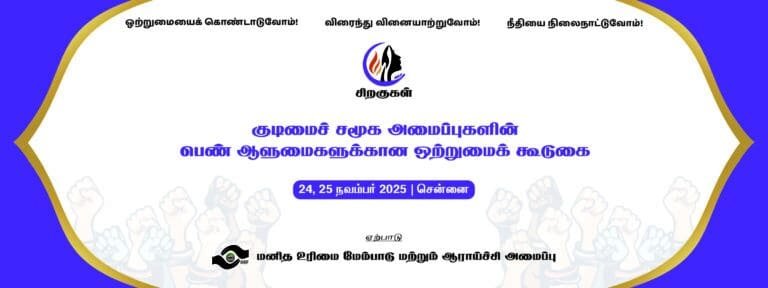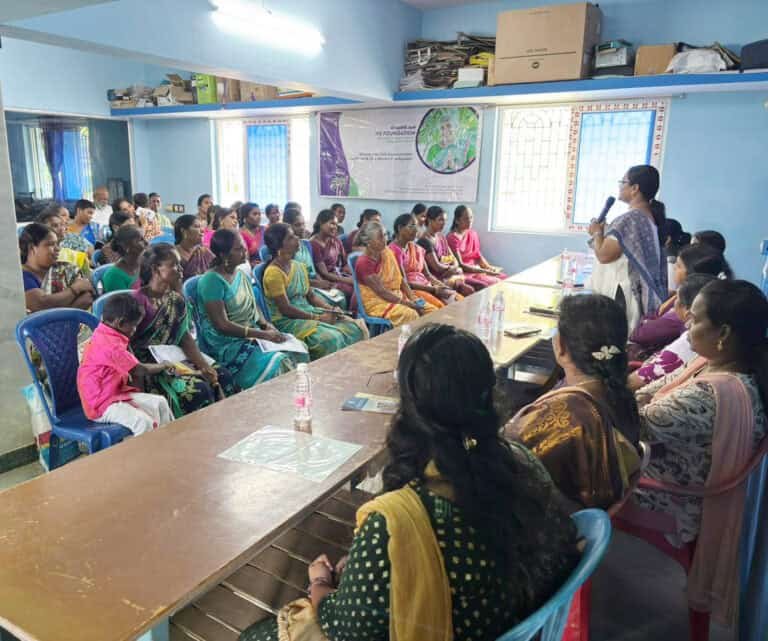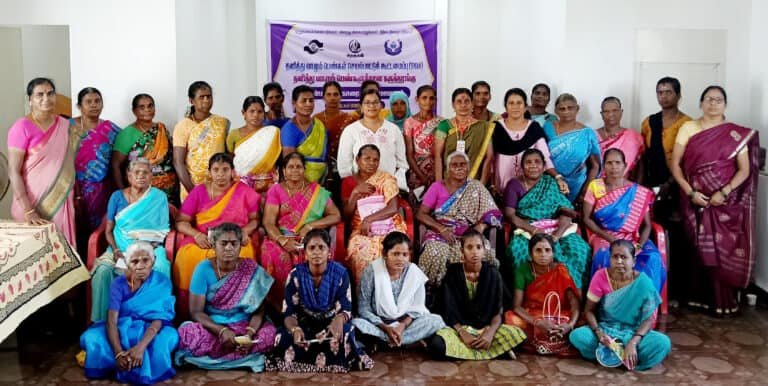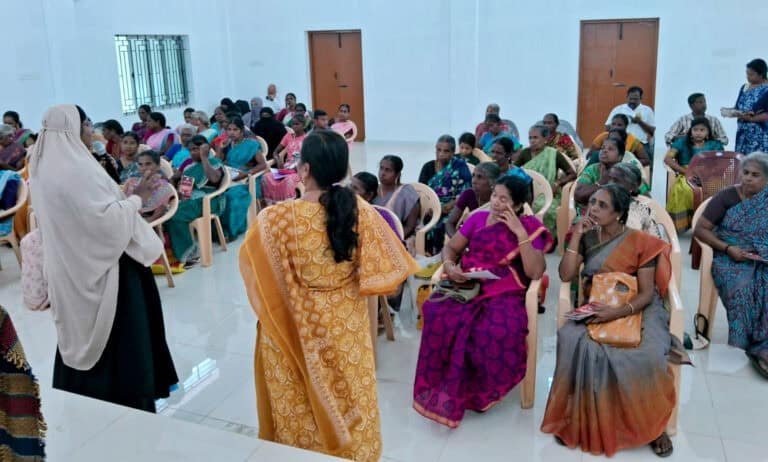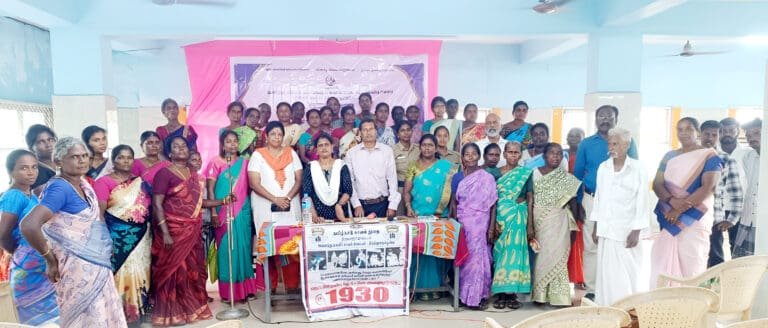February
02: Strengthening small-scale women fishworkers (SSWF): Thivarur district consultation, vulnerability mapping, and life history documentation (NELD)
05: Strengthening small-scale women fishworkers (SSWF): Pudukkottai district consultation, vulnerability mapping, and life history documentation (NELD)
07: CEO forum online review: Implementation of the Scheduled Castes and the Scheduled Tribes (Prevention of Atrocities) Act 1989, POA, in Tamil Nadu
08: Core committee meeting: Single Women Action Network (SWAN) annual convention planning
09: Strengthening small-scale women fishworkers (SSWF): Ramanathapuram district consultation, vulnerability mapping, and life history documentation (NELD)
10: State level: Strengthening local government: Social security implementation (SDG based)
12: Strengthening small-scale women fishworkers (SSWF): Tirunelveli district consultation, vulnerability mapping, and life history documentation (NELD)
16: Strengthening small-scale women fishworkers (SSWF): Thoothukudi district consultation, vulnerability mapping, and life history documentation (NELD)
20: State level: SSWF meeting (Review of district processes)
20: Quarterly Factsheet
20: Strengthening small-scale women fishworkers (SSWF): Nagapatinam district consultation, vulnerability mapping, and life history documentation (NELD)
23: Strengthening small-scale women fishworkers (SSWF): Mayladuthurai district consultation, vulnerability mapping, and life history documentation (NELD)
26: Strengthening small-scale women fishworkers (SSWF): Cuddalore district consultation, vulnerability mapping, and life history documentation (NELD)
27: Strengthening small-scale women fishworkers (SSWF): Thiruvallur district consultation, vulnerability mapping, and life history documentation (NELD)
28: National level: Monthly POA review
28: District level: Quarterly District Citizens Committee Meeting
Wednesday (04, 11, 18, 25):
1530: Evidence building: Audio visual documentation
Saturdays (07, 14, 21, 28):
0900-1800 Survivors’ support and solidarity forum
1000: Basic training on POA
1100: Programme support: POA implementation
1200: SWAN III Annual convention: Core committee meeting
1500: Programme support: Strengthening SWAN
1530: Weekly study circle





